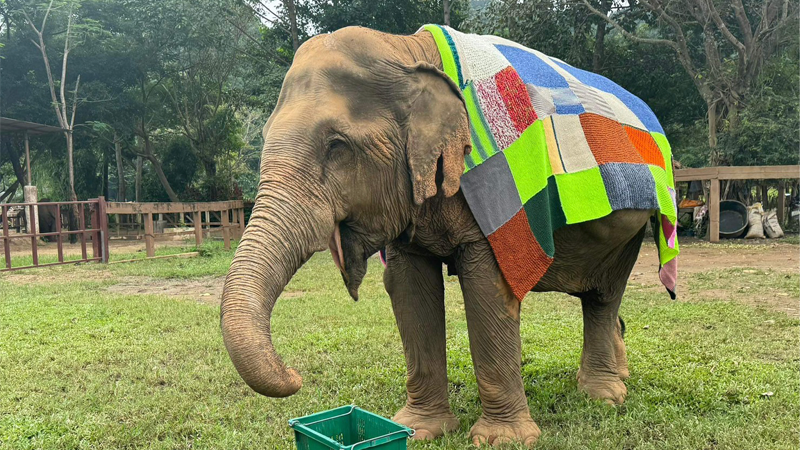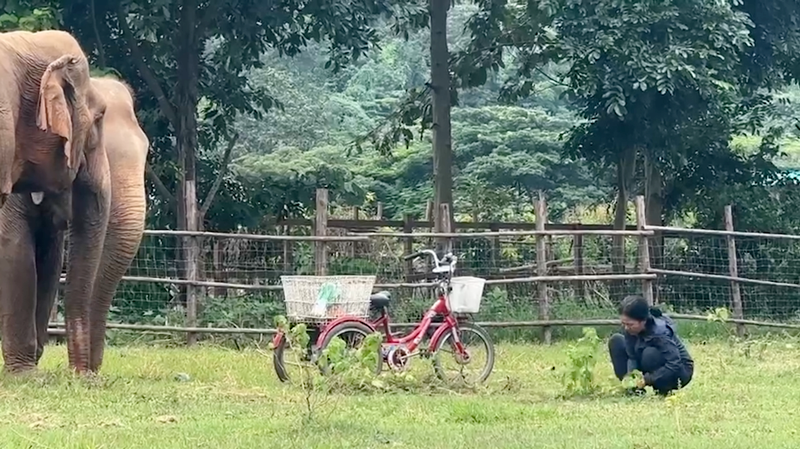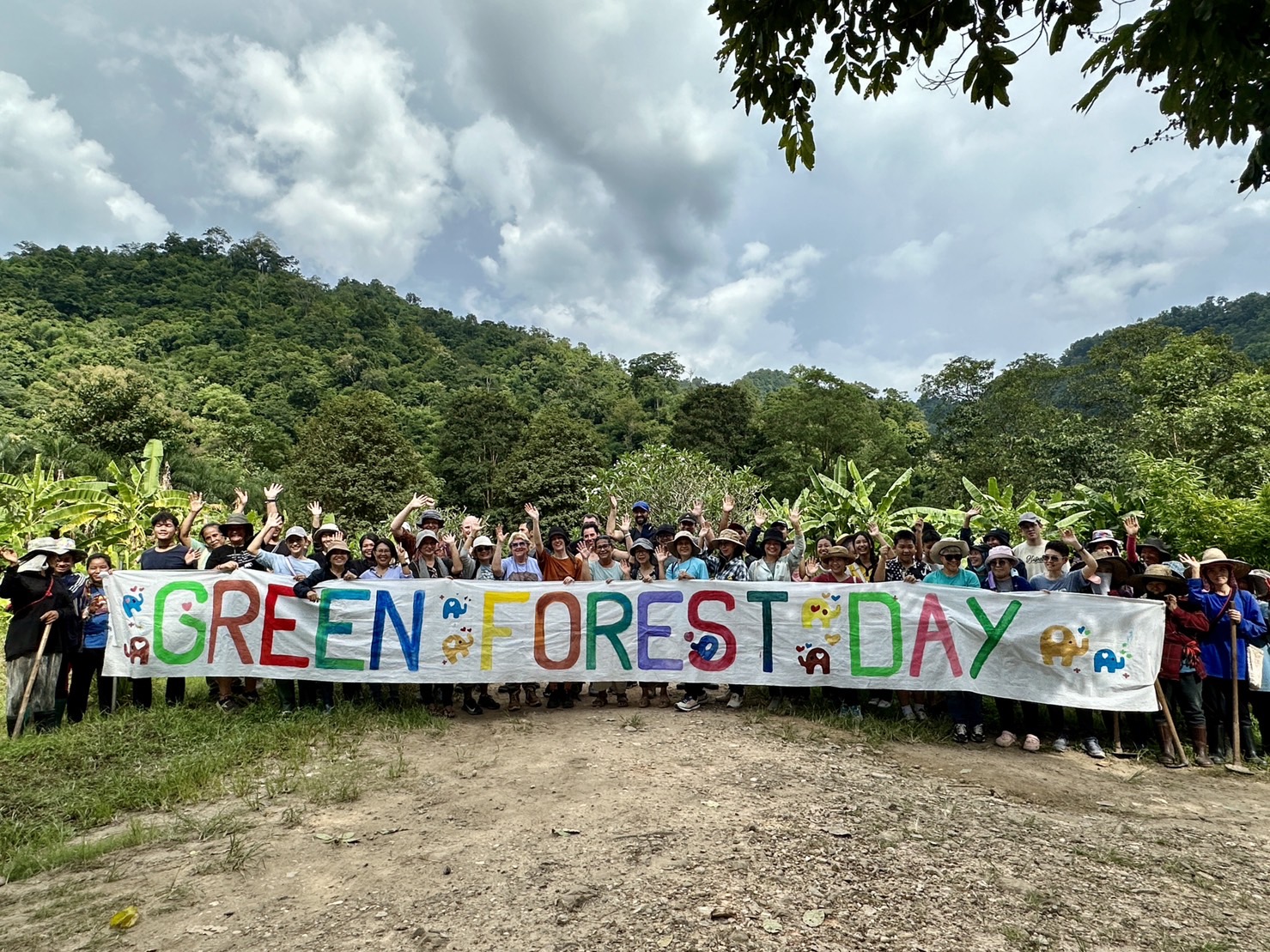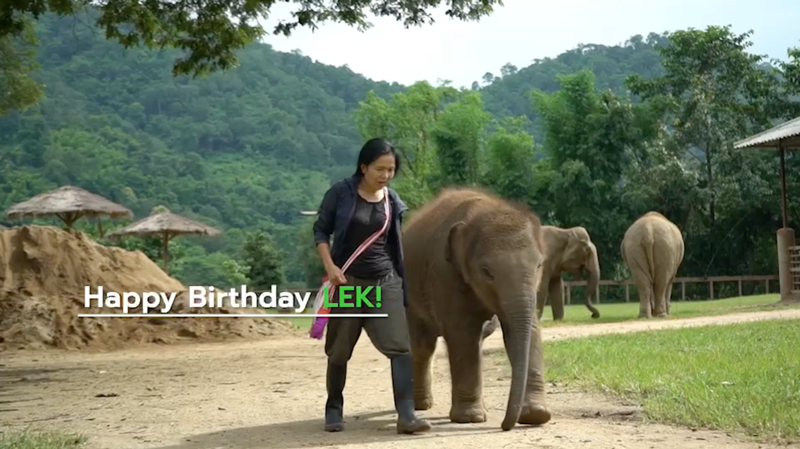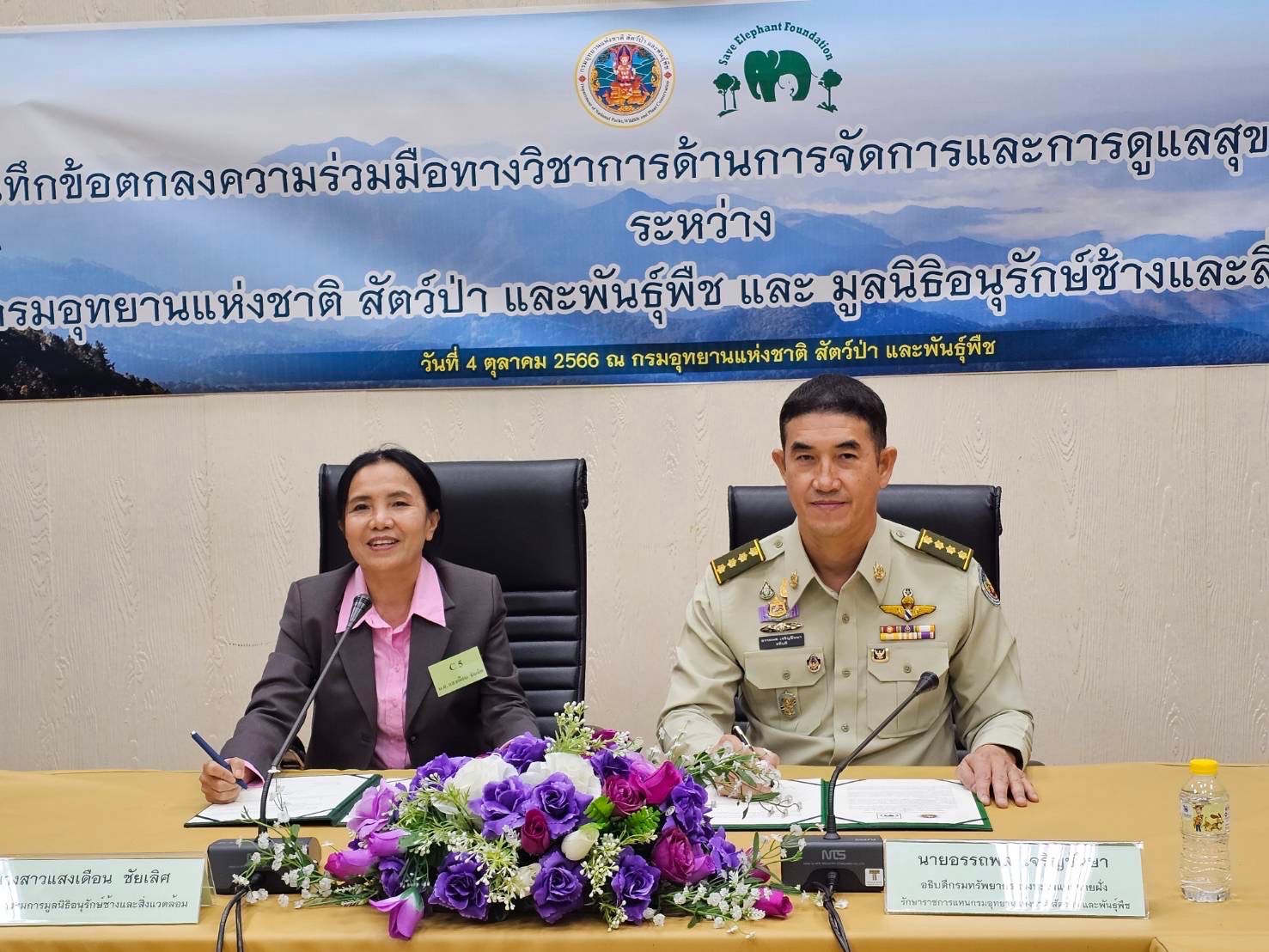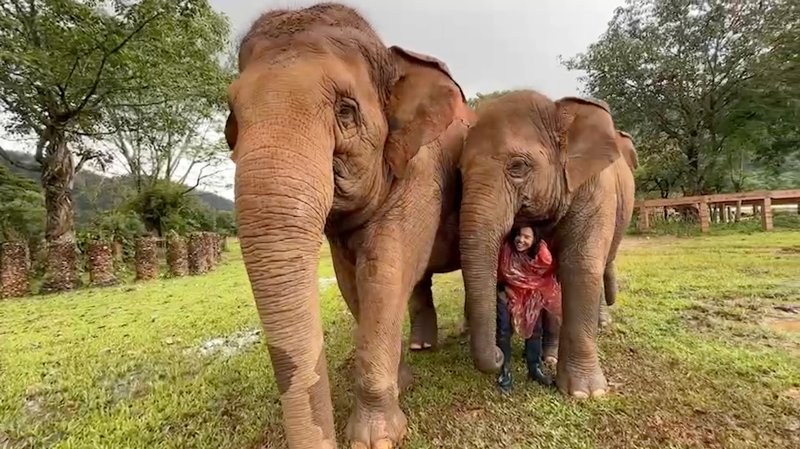The Importance of Positive Reinforcement
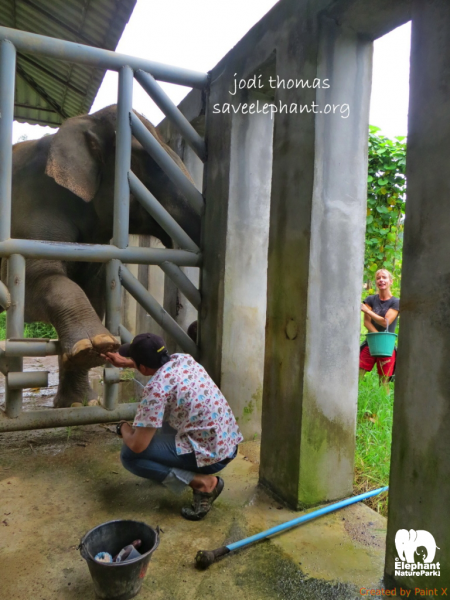
Vet treatment and positive reinforcement target training go hand in hand when working with captive elephants. Medical treatment and visits to the clinic can be a stressful occasion for a captive elephant. Having spent their lives in the tourist and logging industry, our elephants have suffered injuries that would often go untreated in their previous lives. The pain and abuse inflicted on these elephants leaves them very untrusting and uncomfortable with people touching certain areas of their body such as their feet and ears. When put into such a situations, elephants may become agitated and defensive. To desensitize parts of the elephants body takes time, kindness, patience and lots of bananas. Our trainers are required to read each elephant’s body language and understand their movements in order to successfully work safely with them. Their dedication means that many of our elephants now associate their training and vet treatment as non-threating interaction and allow us to treat their wounds and give them a regular check ups.
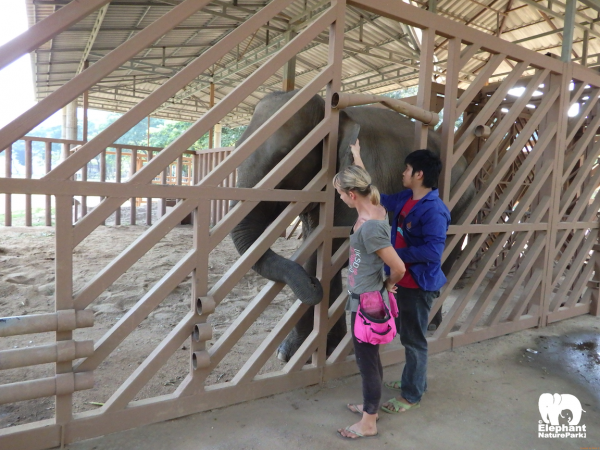
Positive reinforcement is one of the most important factors of our elephants routine, as it is essential for the vet team to work with the elephants safely, while causing minimum stress to the elephants themselves. With the use of positive reinforcement, elephants voluntarily offer their feet for medical checks, their ears for blood tests, their trunks for trunk washes and even their rear end for voluntary rectal exams. Banana balls, chopped bananas and other treats are on offer when the elephant responds well to the training. Positive reinforcement allows the elephants to associate their training with food, meaning that they enjoy their sessions with the trainer and are happy to go to a training wall and visits from the vets are unthreatening. The sessions are voluntary and elephants are able to walk away should they chose to do so… but those bananas are too much to resist.
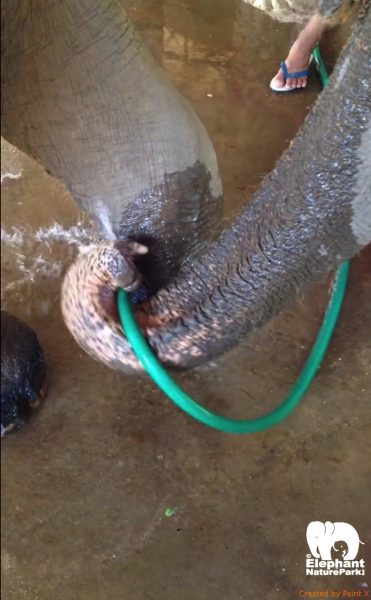 With many different injuries such as landmines, broken limps and dislocated hips, to name a few, our vets have a steady stream of patients who require medical assistance. Their positive reinforcement training allows the elephant to respond to commands that will make accessing the area that requires treatment easier and safer for the vet team. For bull elephants such as Navann and Chang Yim, positive reinforcement training is lots of fun and theirs plenty of food on offer when they respond to the commands. Throughout their training, elephants display many different behaviours such a lifting their feet or holding their ears steady. Their intelligence shines through as the quickly master the techniques. As they become comfortable with the routine, our elephants no longer need to fear their treatment as they know that it will come with a nice bucket of bananas and plenty of praise. Sri Prae, mother of Navann and landmine victim, will even on occasion assists the vets with her treatment by cleaning her injured foot with the water hose herself.
With many different injuries such as landmines, broken limps and dislocated hips, to name a few, our vets have a steady stream of patients who require medical assistance. Their positive reinforcement training allows the elephant to respond to commands that will make accessing the area that requires treatment easier and safer for the vet team. For bull elephants such as Navann and Chang Yim, positive reinforcement training is lots of fun and theirs plenty of food on offer when they respond to the commands. Throughout their training, elephants display many different behaviours such a lifting their feet or holding their ears steady. Their intelligence shines through as the quickly master the techniques. As they become comfortable with the routine, our elephants no longer need to fear their treatment as they know that it will come with a nice bucket of bananas and plenty of praise. Sri Prae, mother of Navann and landmine victim, will even on occasion assists the vets with her treatment by cleaning her injured foot with the water hose herself.
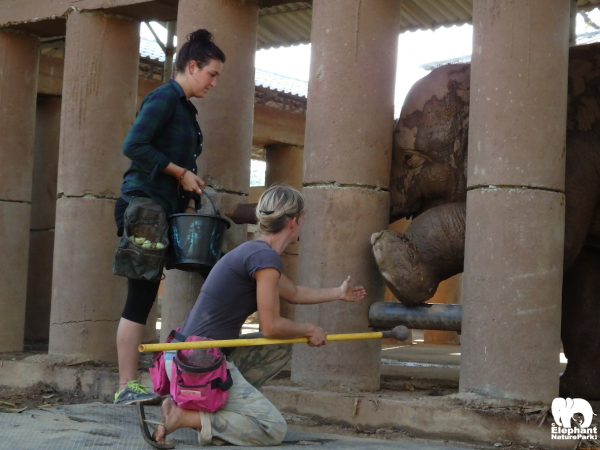
Positive reinforcement takes dedication and patience along with an understanding of an individual elephant’s behavior. The Elephant Nature Park training team work with our elephants daily to reassure them that they are in a safe environment where the people wish to help.


